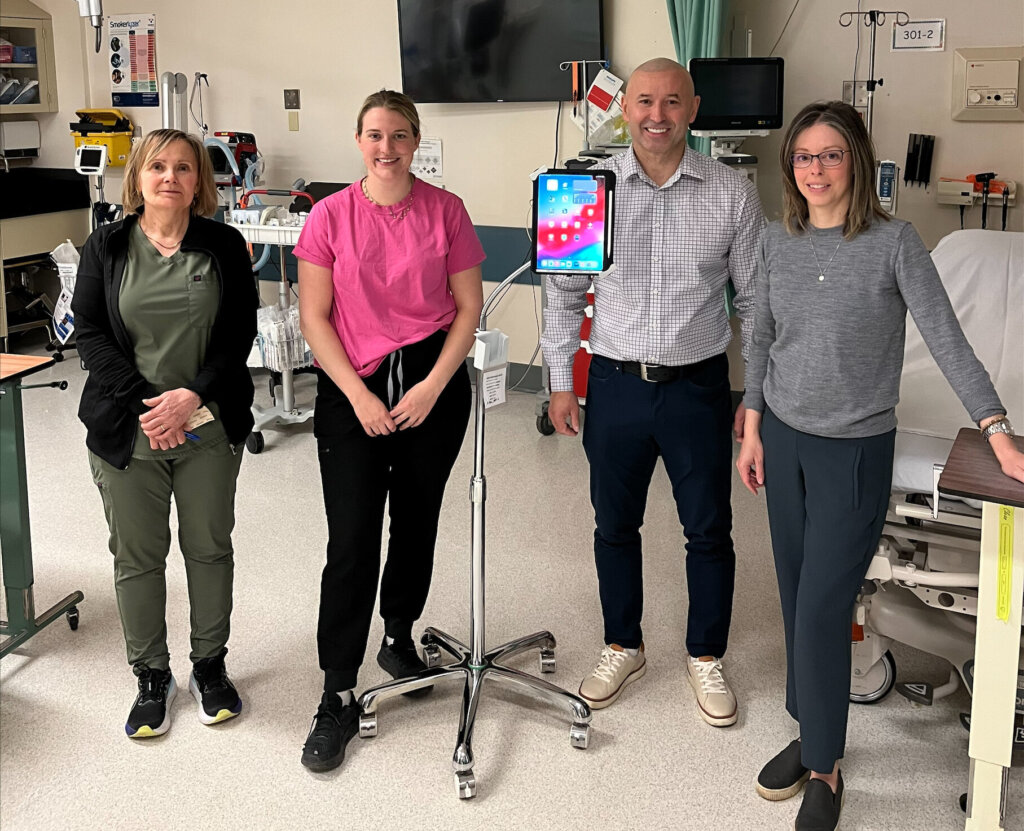A new initiative, VERRa (Virtual Emergency Room Rural assistance), is stepping in to support rural hospitals at risk of temporary closures, offering a lifeline to healthcare providers facing ongoing staffing shortages.
Officially launching on October 1, VERRa is the latest addition to the Real-Time Virtual Support (RTVS) family of services, administered by the Rural Coordination Centre of BC (RCCbc).
The RTVS family already includes the RUDi (Emergency), CHARLiE (Pediatrics), and MaBAL (Maternity) teams, which have provided critical virtual support since the start of the COVID-19 pandemic. These services offer real-time virtual assistance to rural healthcare providers in need of clinical support.
In 2021, the RUDi (Rural Urgent Doctor in-aid) team introduced an innovative service to assist small rural emergency departments experiencing staffing shortages. This work, known as RUDi MRP (Most Responsible Provider), has allowed RUDi physicians to take overnight virtual shifts in communities where local doctors are overwhelmed by unsustainable on-call schedules. With the official launch of VERRa, this critical work will expand and continue under a new banner.
The 24/7 RUDi line will remain, and VERRa is an additional line, operating overnight.

Dr. Rafal Banas, a physician from Chetwynd, knows firsthand the pressures of an unsustainable on-call schedule. He described the RUDi MRP service as a “game-changer” during a staffing crisis in his community. “This service is essential,” Dr. Banas explained. “Even if the virtual physicians only see one or two patients, it makes a difference and helps keep our local doctors in the community.”
Since its launch, the RUDi MRP service has helped rural hospitals avoid more than 5,000 hours of diversion and supported 15 rural communities. By taking on virtual overnight shifts, these physicians relieve the burden on local doctors, preventing burnout and allowing hospitals to maintain critical emergency services.
Due to its success, RCCbc is working closely with the Ministry of Health, Northern Health, the Provincial Health Services Authority (PHSA), and other partners to ensure that this vital work continues and expands as needed.
5000
Over 5,000 hours of diversion prevented
472
472 completed hospital shifts
15
15 rural communities supported
A Lifeline for Rural Healthcare Providers


Dr. Brydon Blacklaws, from Powell River, and one of the new VERRa co-leads, emphasized the importance of this service: “The MRP work is vital to keeping rural emergency departments from burning out their staff. Expecting a rural doctor to be on call every second night is unsustainable. People get tired, and it’s not good for doctors, clinicians, or patients.”
Dr. Caroline Walker, from Masset, VERRa’s other co-lead, echoed this concern: “For communities like Masset, the alternative to this support is losing service and losing providers. The model of rural care, where people are expected to work excessive hours and feel constant pressure, leads to burnout and healthcare gaps.”
Caroline added that VERRa offers relief for physicians, allowing them to stay in their communities and potentially attract new healthcare professionals to rural areas. “It’s not just about the work contract; it’s about the emotional pressure physicians feel from their families and communities,” she noted.
““Virtual supports like VERRa will allow physicians to be able to keep working in these places and potentially recruit to these places.” ”
Planning for the Future
As staffing challenges in rural healthcare persist, the VERRa team is preparing for long-term solutions. “This isn’t a short-term crisis,” said Caroline. “The human resource shortages we’re seeing are predictable and ongoing, so we need to plan for them with sustained support.”
The co-leads also highlighted that because VERRa is administered by RCCbc and funded by the government, it avoids the risks of corporate entities stepping in and profiting from the healthcare crisis. “Some have expressed concern about building this type of support into the system and that it undercuts motivation to staff a site,” said Brydon. “I appreciate the concern, but that isn’t what we’ve seen thus far. If there’s a way to fully staff a site like Fort Nelson or Port McNeill, please do. If every site is fully staffed, and this VERRa program shuts down, then that would be amazing! Given the perpetual growth of this work however, I think some aspect of virtual first-call for rural emergency departments isn’t going anywhere any time soon.”
Looking Ahead
VERRa will continue to support the sites already on the schedule and is ready to expand its reach. By helping to keep emergency departments open and supporting healthcare providers, VERRa aims to be a crucial part of BC’s rural healthcare landscape for years to come.
For more information about RTVS, visit rccbc.ca/initiatives/rtvs. For a case study showing how VERRa support helped Chetwynd, visit rccbc.ca/story/rudi-mrp-program-brings-support. More information is also available on our new dedicated VERRa page.
Communities where VERRa has helped
- Dawson Creek
- Lillooet
- 100 Mile
- Fort Nelson
- Fort St. James
- Burns Lake
- Vanderhoof
- Nakusp
- Chetwynd
- Port McNeill
- Valemount
- McBride
- Masset
- Mackenzie
- Tumbler Ridge


